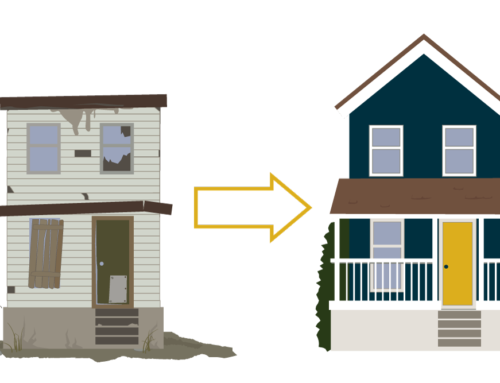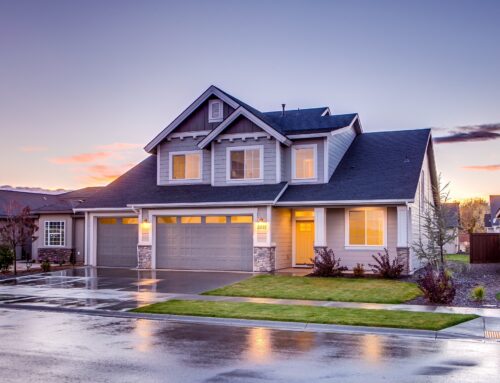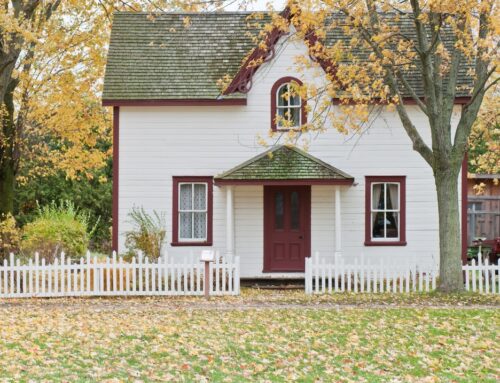In 2019, the average return on investment for flipping houses came in at $62,900. A total of 245,864 single-family homes were flipped in the same year.
That number represents 6 percent of all home sales in the United States for 2019, which was an all-time high. These numbers varied by area, and the amount of work that was done to the house.
Price and profit aren’t all flipping homes are about though.
Now that you’ve seen the numbers, it’s time to get into the nitty-gritty. Read on to find out if flipping houses is actually worth its return on investment.
Why Flip a House?
House flipping is a term that refers to an investor purchasing an undervalued home. That investor then renovates and resells it for a higher price.
Flipping a house is a great short-term investment that has the potential to turn around quick profits. If you’re looking for something passive and long-lasting, then house flipping might not be the answer for you.
The convenience here is the fact that, as an experienced investor, you have the potential to oversee several remodels at a time, much like someone with rental properties or other forms of real estate.
The only difference between the two is the lengths of the investments and the amount of immediate return you would receive. Passive income comes in at a slower rate, but it lasts longer than the short-term investment would.
You Have to Know the Logistics
The other thing you have to consider before flipping any house is the logistics of it all.
Do you know your market? Are you sure you’ve found the right property? How smart are you being with your renovations?
As an investor, you have to be diligent about how much time and money you are putting into a specific property, and you have to be sure that the property is going to be worth the money in the end.
Can You Build an Expert Team?
The biggest part about becoming a full-time real estate investor is crafting an expert team along the way. Flipping houses is a big process and not something you should take on solo. There are a few things to consider before building your team, though:
- Are you going to have to take out a loan?
- What areas do you need the most help in?
- What can you fix yourself?
- Should you get an inspection?
- Who’s going to help?
It’s easy to identify the areas that you need help in. Maybe you’re not the best interior designer, or you need an architect to help you think things through. Even knowing a decent contractor can help you a lot along the way, especially with larger house flips.
But do you know where to look to find those people and build that team? Research is going to be your best friend in this area, especially if you’re struggling to answer the question.
It’s Easy to Make Mistakes
When first starting out, it’s easy to sip up and make mistakes on your investment properties. Here are a few things to look out for and ensure you’re getting the best return on investment you can.
Underestimating the Cost
Structural issues are an abundance in older, undervalued homes. Underestimating, or altogether leaving out, the possibility of having to fix foundation issues, water pipes, electrical wiring, or any other number of things could cause a real problem.
Dipping your toe into the real estate pool is already hard enough. There’s no reason to rule out the risks that an older, or poorly-maintained, home present.
Don’t Rush Things
The next biggest mistake that new house flippers make is impatience.
Building a good team, getting approved, waiting on remodels to finish, and even the process of just getting the home loan approved can take a long time.
Not only are you investing money into a property, but you’re also investing time. The amount of time it takes to sell a property can also be easy to underestimate, and it’s important to not get discouraged if a house doesn’t sell within a few weeks.
Something else to consider is who shows the house. Are you going to do it yourself? Are you going to hire someone?
Either way, there’s money you spend on travel to and from the property, or commission that you’ll owe a real estate agent to consider.
Are You Handy?
This isn’t necessarily a mistake, but it’s something to consider. To flip houses, you’re going to have to hire help — especially for larger projects.
Putting your own time and energy into a property is called sweat equity. What you didn’t spend in money you made up for in mental and physical energy.
The more sweat equity you can put into this remodel, the cheaper it’s ultimately going to be for you in the end (though that doesn’t mean you shouldn’t seek professional help if you need it).
So, is a Career in Flipping Houses for You?
The answer to the question here is, choosing a career in flipping houses is completely up to you.
If you’re ready for the time, energy, commitment, and straight-up grit that flipping houses take, then this career has the potential to benefit you greatly.
It’s no secret that the market for flipping houses is a large one, and is expected to increase in the coming years, but it’s also risky. Some houses are bought site unseen and you don’t know what is lying behind all that drywall.
Even if you can tour the home, it can be hard to tell what’s going to show up when demolition starts.
Luckily, fix and flip loans are a great way to help you get started. If you’re interested or have any other questions, contact us today.






Stay In Touch